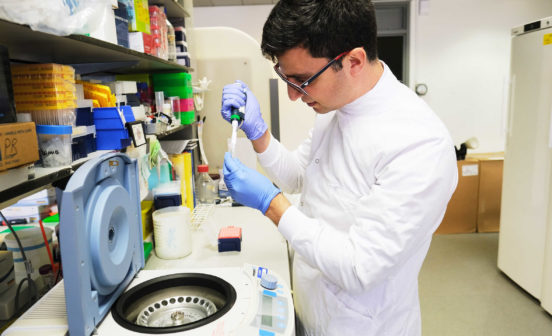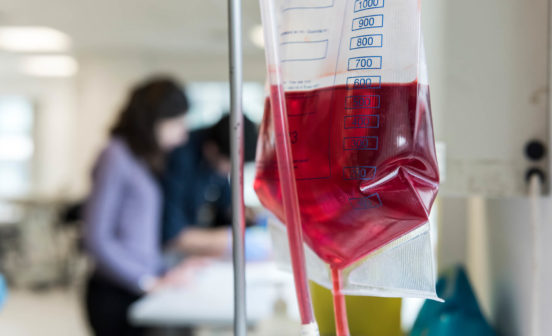Treatment Study shows immune insights could lead to targeted treatments for children

New insights into how children’s immune cells respond during fever could lead to better treatments for a range of illnesses.
These are the findings of a new study which reveals how individual immune cells respond to a range of severe childhood infections and inflammatory diseases.
By analysing blood samples from more than 100 children with febrile illness – where the main symptoms include high fever, but which can be caused by a range of infections and conditions – they have been able to pinpoint subtle changes in how the immune system responds to four key conditions.
According to the team, their latest insights build on a body of work which could help to improve targeted treatments for febrile illnesses, helping to better target treatments for patients.
The work, led by a consortium involving researchers at Imperial College London, King’s College London and the University of Edinburgh, published in Nature Communications, and was funded by European Union funding (DIAMONDS collaboration) and the NIHR.
“For decades we have been working to unpick the granular detail of febrile illnesses, so we can improve treatments and reduce the impact these conditions have on children,” said Professor Michael Levin, Chair in Paediatrics & International Child Health from the Department of Infectious Disease at Imperial College London, who led the work alongside the University of Edinburgh’s Professor Manu Shankar-Hari.
“As clinicians, we may often see a child in the hospital or clinic with a fever and no other real defining symptoms, making an accurate diagnosis and targeted treatment difficult. Through this latest work, we can see how different immune cells are responding in four conditions with different underlying causes. This study, and others like it, are helping to provide a clearer picture of the immune mechanisms in febrile illnesses which may ultimately help us to diagnose children earlier and get them the treatment they need.” he adds.
Severe infections and inflammatory diseases that cause fever (also known as febrile illnesses) can be life-threatening to children. This is partly because they can stop the immune system from functioning properly. This ‘immune dysfunction’ makes the body less effective at clearing infections and can send the immune system into overdrive, causing damage to the body. Despite having different causes, severe febrile illnesses often have overlapping symptoms, which can make diagnosis difficult. A better understanding of how the immune system responds to different febrile illnesses could help with diagnosis and highlight new ways to treat immune dysfunction in more targeted ways.
In the latest study, the team looked at different groups of immune cells in blood samples taken from 128 children with different febrile illnesses: multi-system inflammatory syndrome of childhood (MIS-C) associated with COVID-19 infection; severe bacterial infections; severe viral infections; and Kawasaki disease (a severe inflammatory disease in children).
They found that the functioning of a number of types of white blood cells (particularly neutrophils and T cells) was impaired in children with MIS-C and severe bacterial infection, despite the different causes of the disease.
They also saw decreases in the levels of inflammatory markers called interferons – proteins that help to clear viruses from the body – in children with severe infection.
The team was motivated to investigate immune dysfunction in febrile illnesses after noticing that during the COVID-19 pandemic, there was an increase in the number of children being admitted to hospitals worldwide with what looked like symptoms of a severe bacterial infection, including high fevers, red eyes, conjunctivitis, rashes and very low blood pressure.
In reality, the children were experiencing MIS-C, a condition that can develop about four weeks after COVID-19 infection.
Dr Michael Carter, from King’s College London and the Evelina London Children’s Hospital, said: “We saw that severe bacterial infection and MIS-C overlapped immunologically, although they are caused by very different things.
“In the clinic currently, our treatments for dysfunctional immunity are poor and not targeted to individual children. Going forward, by looking at the immune system in much more detail, we hope we’ll be able to develop therapies that can treat the immune response in a much more targeted way and improve outcomes for our patients.”
The latest findings build on related work, led by Imperial researchers, which aims to develop a simple blood test which may be able to rapidly diagnose the cause of a childhood febrile illness, which the researchers say could be ‘transformative’.





